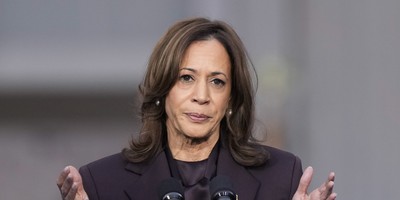The Baghdad bombings on Wednesday, for which ISIS has claimed responsibility, has so far claimed the lives of 93 people and wounded almost 200 more. It is just another reminder of the carnage the terror cell is inflicting on religious minorities.
In March, the Obama administration finally declared that ISIS’ targeting of Christians in the Middle East was genocide, a significant step because the term requires some form of action. At a Heritage Foundation event in the nation's capital on Wednesday afternoon, a panel of religious freedom fighters suggested the steps the White House should take now that this crisis has been accurately labeled.
Townhall caught up with two of the leaders on the first panel to get their reactions to the White House's action - or inaction - in the fight against ISIS. Knights of Columbus is a Christian organization that sent the White House a 300-page report earlier this year detailing the atrocities ISIS has committed against religious minorities and waited for an answer. Andrew Walther, the vice president of communications for the KOC, took a few moments to share his initial reaction to the White House’s response.
Townhall then had the opportunity to speak with Fr. Douglas Bazi, a Chaldean priest who was taken hostage by terrorists in 2006. He was beaten and tortured for days – and still has the bloodied shirt to prove it. He is currently visiting the United States to generate more awareness about what is happening to his people in Iraq.
Recommended
One attendee wondered what Bazi is hoping Americans take away from his visit.
“Take action and be our voice,” he urged.
Calling Christian slaughter genocide is the “first right step,” he said. He was "comfortable" with the administration's response, but insisted that's not where the conversation should end.
A second panel featuring Thomas F. Farr, the president of the Religious Freedom Institute, focused on policy. Farr lamented that if no concrete action is taken, “the lands where apostles walked will no longer have Christians.” An emotional response, in other words, is not good enough.
“Tears are not a policy,” he said.
Olivia Enos, the research associate for Heritage’s Asian Studies Center, concurred. Under the UN genocide resolution, she noted, “we’re supposed to punish those committing genocide.”
“We need to go after human rights abusers,” she continued.
Religious freedom is the equality Fr. Bazi is talking about, the panel explained. It’s not just the right to worship, “It means full equality under the law. It is required by our foreign policy.”
Overall, these experts were not pleased with the Obama administration’s lackluster response to the fear Christians are facing every day in the Middle East.
Immediately after the administration used the term “genocide,” White House Press Secretary Josh Earnest indicated no changes would be made on the ground, instead reminding the media about the airstrikes the military has already launched against ISIS. As for Secretary of State John Kerry, his reaction was more “affirmation of the same,” Enos said.
“We need to be planning for the post-ISIS world,” Farr said. “The only thing you can’t do is nothing.”
Although Fr. Bazi’s narrative is a powerful one, he insisted that we should now focus on his people.
“Don’t stop at my story,” he said. “Turn now to my people.”

























Join the conversation as a VIP Member